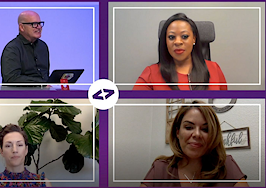It’s often said that a crisis doesn’t build character; it reveals it. Well, when it comes to real estate, COVID-19 is proving that crisis doesn’t change an industry — it accelerates the changes that were already in the works. In that spirit, these are my top three takeaways from the pandemic so far.
This is not 2008
Many people are surprised that the housing market hasn’t collapsed like it did during the Great Recession. We forget the key difference between then and now. Real estate was the cause of the 2008 crisis.
At least in Minnesota and Western Wisconsin, the residential real estate market was incredibly strong before the pandemic hit, so it shouldn’t be surprising that it has remained resilient.
Yes, supply has gone down and inventory is tight as many sellers sit on the sidelines. But demand has never dropped. Individuals can’t talk about a “recovery” because on the buyer side there’s nothing to recover from. Physical showings are already back to pre-COVID-19 levels. For homes priced under $500,000, the traditional spring market has simply switched to a virtual spring market. End of story.
Why are people looking to buy homes during a crisis? It seems counter-intuitive to some. To me, it’s a reminder that a home is more than an investment. Along with food, water and clothing, shelter sits at the very foundation of Maslow’s hierarchy of needs. We’ve always known how important a home is. Now that our homes have also become our offices, schools and gyms, we’re feeling their importance more than ever before.
Bottom line: Real estate isn’t immune to COVID-19. However, during this crisis, the very concept of “home” has never been more valuable.
Team structures are winning
My company is the rare real estate brokerage that runs entirely on a team model. I structured it that way because I’ve always believed that in real estate, our biggest competition isn’t each other; it’s the experience consumers have with other companies in other industries.
In that sense, winning comes down to delivering two things: speed and convenience. Carvana delivers that when you buy a car. Amazon delivers it when you buy groceries (and basically everything else). Therefore, real estate has to deliver the same thing.
Within real estate, teams have long had an advantage over individual agents in controlling the consumer experience. So when the pandemic hit, it’s not surprising that they adapted more quickly and delivered superior speed, safety and convenience. Teams simply have a stronger service-oriented infrastructure. They have the right people in the right seats. They have economies of scale to better market, build their brand and deliver a consistent, predictable process.
Individual agents were having a tough time competing with teams before COVID-19. After all, if you’re at an appointment, how do you take a sign call? If you take a sign call, how do you respond to a Facebook message? If you try to spin 15 different plates, how do you keep some (or all) of them from breaking?
COVID-19 has also exposed the struggle big brokerages face in getting their agents to adopt new practices. It caught leaders flat-footed. When they finally made changes, their agents were slow to adopt them because they lacked the tools to do it.
Bottom line: Team-based real estate will continue to thrive, while individual agents will struggle to keep up with consumer demand.
Technology is important, but being human is more important
Most “How is COVID-19 going to change the industry forever?” stories focus on technology, and for good reason. Can you imagine the past couple months without the internet? The coronavirus has been the ultimate disruptive force. If remote work, telemedicine and online education are working better for some people, then why not keep using them — especially if they deliver superior speed, convenience and efficiency?
My company was already equipped to work remotely, but we also made some technology changes that will likely outlast the virus. For example, I purchased a dozen 3D cameras for virtual showings (good timing because those cameras are now on backorder), and I started all-hands-on-deck morning Zoom meetings so we could stay in the loop on serving clients better in real time.
These and other technology advancements throughout the industry are posing some interesting questions for the future: Will agents ever go back to physical offices? Are in-person closings a thing of the past? As long as inspections are still performed in person, will more consumers prefer the convenience of remote showings? Is the open house finally dead?
These are good questions, but lost in our obsession with technology is a more human story. Real estate has been tragically slow to adopt a “core values culture” that puts humanity before business. Articulating and operationalizing our core “be generous” value did more to attract the right people to our business than any other tool, and the crisis kicked us into high gear.
We changed our billboards from a marketing message to “Be generous” and “Support local.” We launched a small business gift card giveaway on our social channels. We asked our entire database if they needed help in any way, which resulted in actions like buying groceries and hiring Uber drivers to deliver them. None of this directly related to our business, but it was the right thing to do, and that’s more important.
Bottom line: “We’re all in this together” isn’t a cliche. We no longer live in a world where people are satisfied punching a clock and going home. Especially now, real estate needs to think bigger than itself.
We don’t know when COVID-19 will end, but we do know that it won’t be the last big crisis we face. The last months have been a stress test for real estate professionals, and we should all be asking ourselves some serious questions: How have I handled things so far? What can I do better next time? Does my organization have an adequate emergency response plan in place for the next crisis?
Most of the real estate professionals who are thriving during this crisis tend to share two things in common: They’ve all adopted a consumer-oriented, team-based approach, and they all started their businesses during a downturn. This points to the one true takeaway for me. When a crisis ends, you remember two kinds of people: the ones who stepped up, and the ones who disappeared.
Crisis or not, that’s the choice we all face every day.
Kris Lindahl is the founder and CEO of Kris Lindahl Real Estate, an independent, team-based brokerage serving Minnesota and Western Wisconsin.













